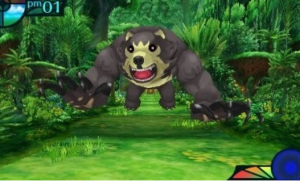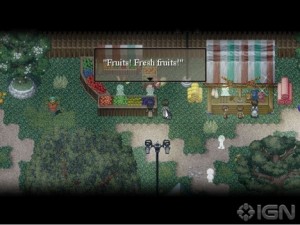Recently, a little game called Grand Theft Auto 5 was released to the tune of making 800 million dollars in 3 days. So in other words, I think we can call it a success. However, you’re talking to one of the few people who didn’t really care about GTA 5′s release and the reason has to do with what kind of gameplay I prefer.
Qualitative Gameplay:
If you look at the progression of AAA development over the last decade, designers have been going for cinematic experiences stretched over a long period of time. As a result, the game mechanics have been streamlined down for the general audience to play.
Now streamlined in of itself is not a bad thing, but what ends up happening is that you have gameplay that stops growing a few hours in and the rest of the time is going through the story. In other words, these games play their chips far too early in the experience.
Sure, designers may add collectibles to hunt or introduce a new enemy here and there, but the gameplay becomes second banana to whatever story the designer wants to tell.
For instance, Bioshock Infinite’s gameplay reaches its climax in terms of complexity once you’ve fought your first handyman ( I know that people are going to bring up the final two sections as examples of new gameplay, however because they are just one and done situations, it doesn’t make them examples of gameplay growth.)
Even a game like Skyrim which boosts dozens of hours of exploration and a giant world still features very simplistic gameplay that doesn’t evolve past the first hour or so. While the world itself is teeming with things to do, the actual game mechanics are basic.

While the Etrian Odyssey series lack the art design and cinematics of Final Fantasy, I prefer it’s deeper gameplay when it comes to party customization.
And that takes us back to the title of today’s post. Most AAA games today are focused on creating breadth — A long game with not much complexity or growth, vs. a game made up of depth — Where the gameplay is deep enough to provide constant change and challenge.
A great example of this perception is if you look at the difference between a RPG like the Final Fantasy series vs. something from Atlus like Shin Megami Tensei or Etrian Odyssey.
The Final Fantasy games have a unique mechanic that differentiates themselves from one another, but it’s learned very quickly and then used to sustain the experience for dozens of hours of storytelling and cut scenes. While in a SMT or Etrian Odyssey title, the gameplay continues to challenge the player with ever changing enemy types and situations to keep the game growing.
While the titles from Atlus may not have the same time sink as a game like Final Fantasy or Skyrim, the actual gameplay is a much deeper experience. This is also why I’m a fan of Indie titles, as I prefer games that feature one or two deep mechanics over a shorter period of time vs. a game that tries to do multiple things just okay.
This brings us back to the GTA games and most open world titles and how they have not hooked me. As they go for a lot of basic mechanics to fill up their worlds in. This goes back to my post series about my favorite open world games and each one that made the list may not have had the most fleshed out world. But their moment to moment gameplay was unmatched in my opinion.
I said this in my post about Spiderman 2, but it was one of only a few open world games with a movement system that was in-depth enough to make just exploring the city engaging.
Now, I’m going to sound like a huge snob with the following statement: I akin playing most open world titles these days to eating at a buffet, where this is a lot there, but you’re not going for quality, but quantity.
And I fully admit that I’ve become somewhat of a “video game snob” over the last few years. I can’t play games based around annual releases that do the same thing every year with marginal improvements. Or basic flash and mobile games built around a single mechanic and nothing more.
And while I can appreciate games that use basic mechanics to tell a deep or mature story, but that’s not where my interest lies in game design. To me, a good story is like icing on a cake: It helps elevate the cake, but won’t save a poor one.
As a case in point, why I normally don’t enjoy narrative focused titles or “Art Games” like Analogue: A Hate Story, Dear Esther or The Path.
Give me something like Etrian Odyssey that features a basic story to get you to go into a dungeon but has deep mechanics built around party customization. Or a game like Card Hunter or Ironclad Tactics where the bulk of the time spent is digging into the mechanics.
This last year has been a great time for me in terms of experiencing new designs thanks to the number of interesting Indie titles released and hopefully we’ll continue to see more as many of the kickstarter projects will be coming to fruition soon.
And while I can always enjoy a big bombastic game once in a while, I prefer to spend my time with games that I can really sink my teeth into.



